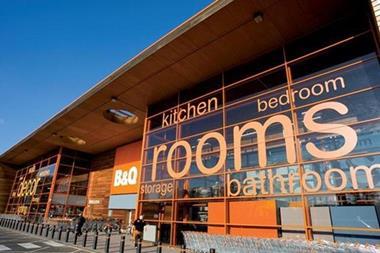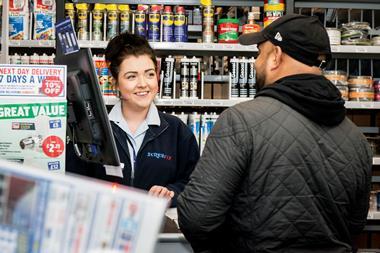Following in the footsteps of B2C ecommerce trailblazers, innovative B2B brands are starting to build their online capabilities.
Since the turn of the millennium, ecommerce-based B2C businesses have forever changed consumer behaviours and the landscape of the high street.
Amazon, Asos and Currys PC World have all achieved market disruption, but will the same be true for buying behaviours in the B2B marketplace?
In a nutshell, it’s already happening.
Initially, leading trade brands identified that digital marketing was another way to drive customers and prospects from their website, emails and social media channels into their stores.
“A growing trend for B2B businesses is to possess an ecommerce capability to convert customers online, using it as a 24/7 shop or account manager”
Content across digital channels reflected this, with e-brochures and store locators added to websites and awareness pieces across social media focusing on in-store promotions and activity.
This encouraged online customers to visit their local branch or simply positioned stores as an inviting place to consider when ready to purchase.
But things have now evolved.
A growing trend for B2B businesses is to possess an ecommerce capability to convert customers online, using it as a 24/7 shop or account manager.
Different approaches to B2B ecommerce
There are differing approaches that show how ecommerce can be used as an effective sales channel for B2B businesses while supporting store sales.
Schoeller Allibert manufactures recyclable plastic containers, trays, pallets and dollies, which are designed to save fuel and packaging costs, and improve supply-chain efficiency.
Its online store has proved particularly successful with SMEs, allowing them to buy products with low minimum-order quantities, which are easily paid for by debit or credit card.
A live-chat system on the web shop allows customers to seek advice from a member of the sales team, not a bot, allowing them support when needing to source a bespoke solution.
In contrast, DIY retailer Screwfix – which has a branch network of more than 400 stores in the UK – has traditionally focused on customers engaging at a trade-counter level.
“Screwfix recognised a market opportunity: tradespeople on building sites with a phone in their pocket”
But Screwfix recognised a market opportunity: tradespeople working on building sites with a phone in their pocket.
The launch of Screwfix’s transactional mobile app has facilitated a growing number of click-and-collect orders, helping to drive sales growth and footfall.
Both companies have successfully adopted a sales approach and shown how effective ecommerce can be as part of an integrated multichannel sales strategy.

Harry Wheatcroft is digital marketing co-ordinator at Schoeller Allibert UK.
Find out more at schoellerallibert.co.uk



























No comments yet